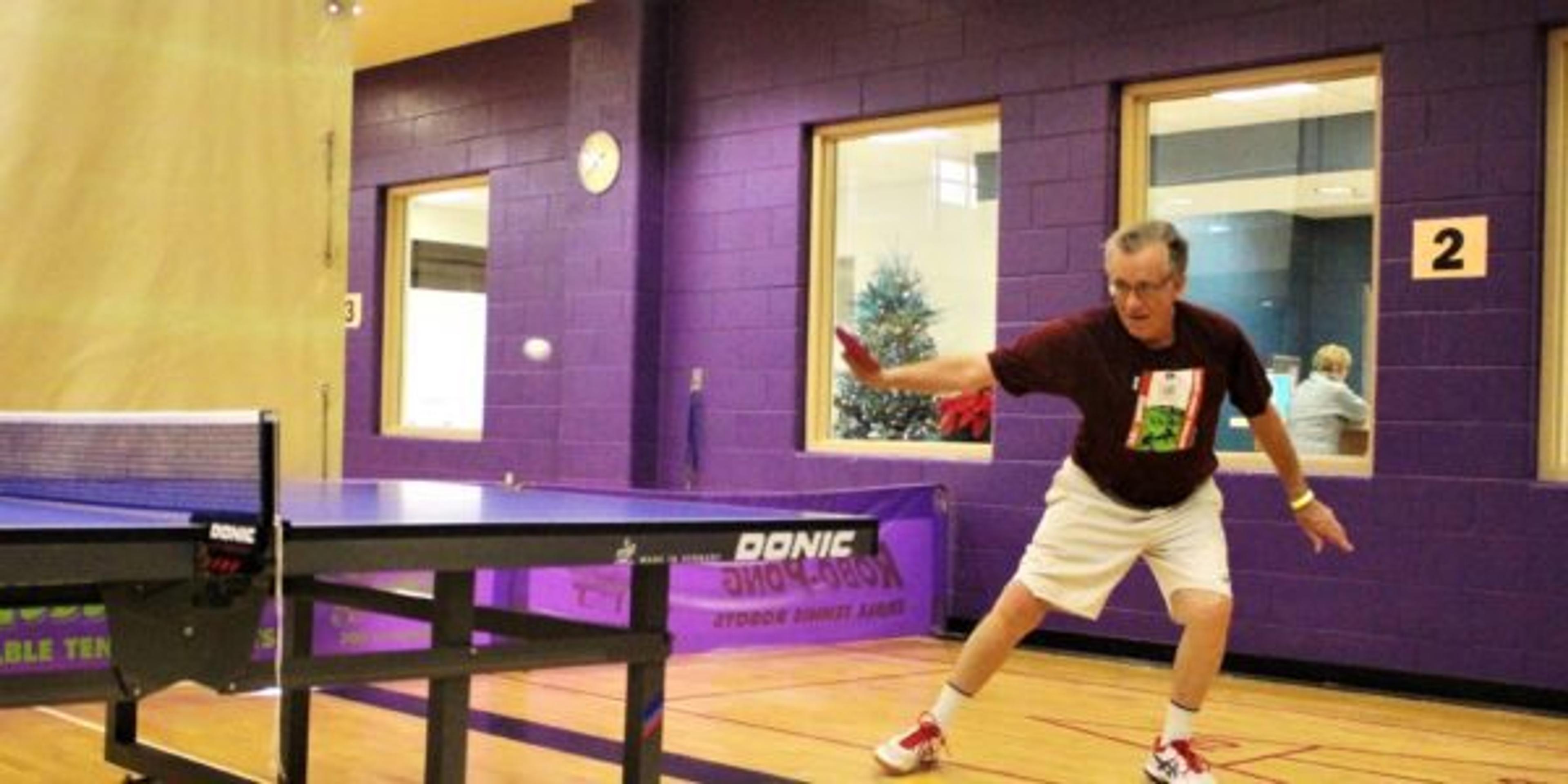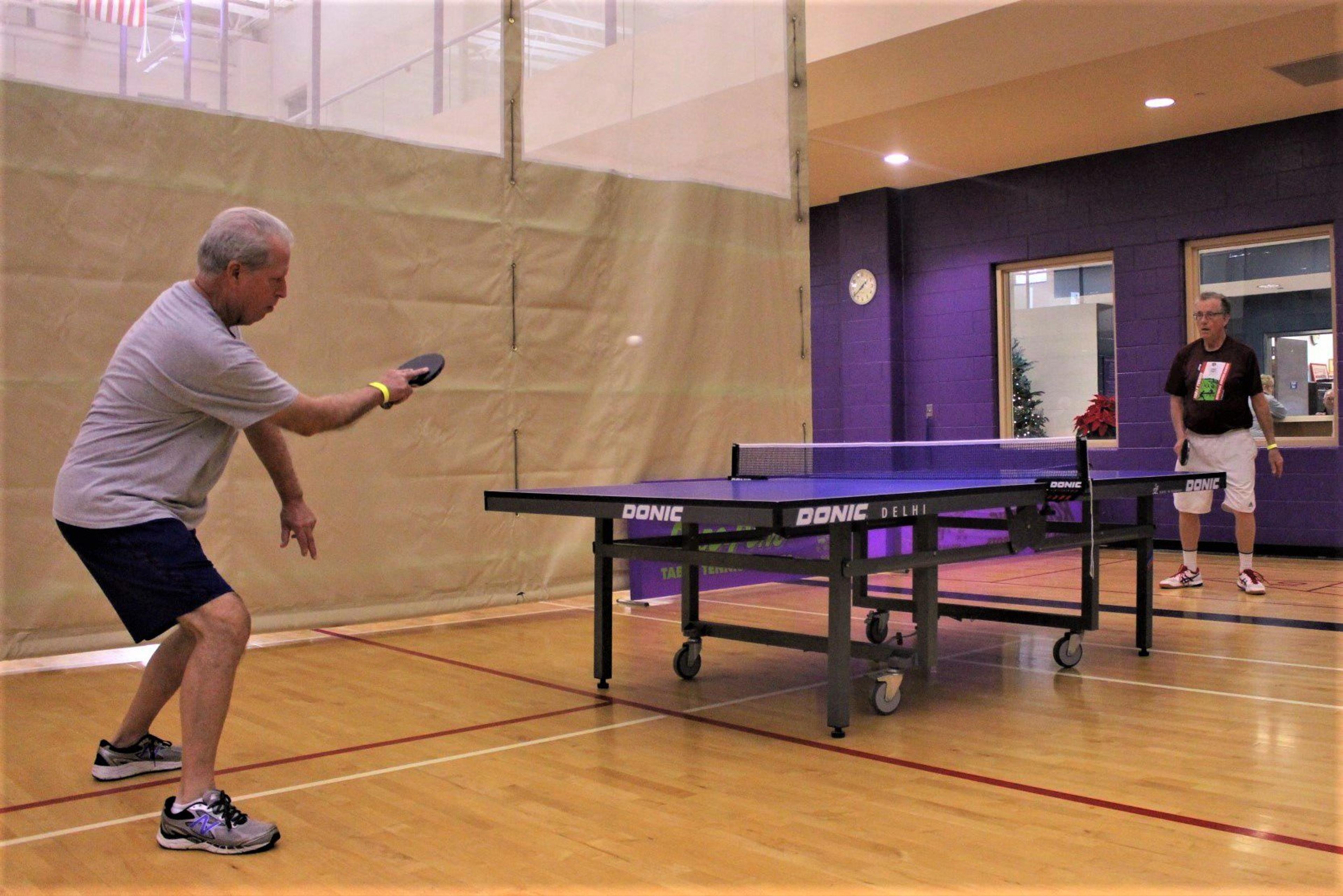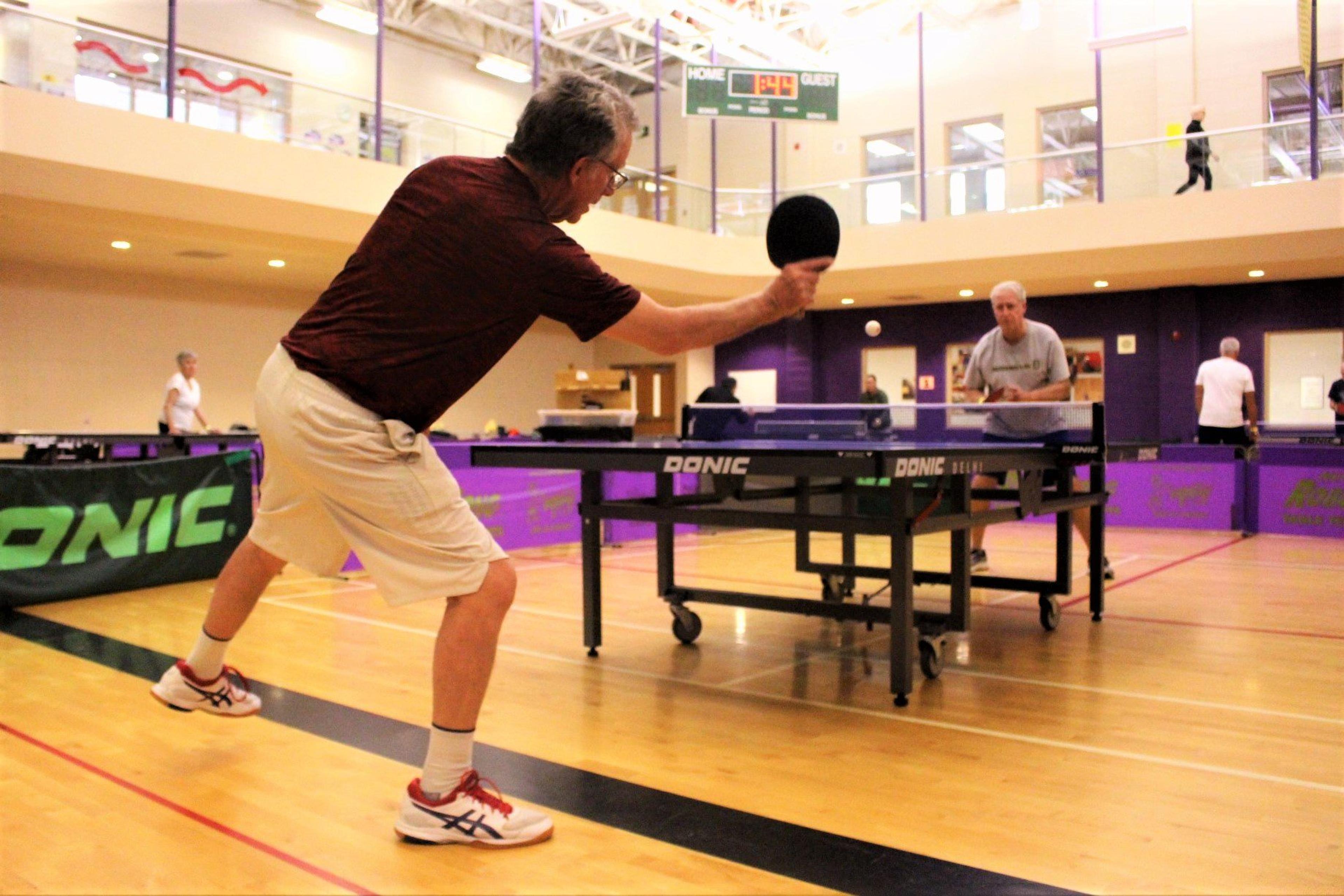Table Tennis Helps Michigan Man Lose Weight, Stay Active in Retirement
Amy Barczy
| 3 min read

Don’t call it ping pong. This is table tennis.
On a recent weekday afternoon several men, aged 50-plus, are breaking a sweat volleying across tables set up in an open gym. While there are plenty of laughs and banter to go around, the activity is concentrated and focused – and maybe even silently competitive.
For Bob Van Camp, 73, of Oakland Township, these three-hour table tennis sessions are his exercise ritual. He comes three times a week to the Older Persons’ Commission in Rochester to play with fellow seniors aged 50+. It’s an activity that boosts his physical health and is a great source of fun.

Bob Van Camp plays table tennis at the Older Persons Commission in Rochester.
He picked up table tennis after his retirement in 2011 from a career in education. Van Camp was an educator his entire career – beginning as a teacher at The American University in Cairo, Egypt, and ending his career as the assistant superintendent of teaching and learning at Utica Community Schools.
Upon retirement, he took stock of his health: he had some extra weight and bad eating habits he picked up from job stress.
For Van Camp, table tennis wasn’t his first pick to get active again. He had previously played tennis, but after two knee replacements the sport had become too physically demanding. He also considered picking up pickleball: but again, the sport required too much running and changing direction for him.
Table tennis fit the bill.
“I had played it earlier in life and enjoyed it,” Van Camp said of why he chose table tennis. “I have good hand-eye coordination, and it’s a better court size.”
But it wasn’t the ping pong of his youth: at Romeo Junior High School – the options during lunch were dancing or ping pong. He chose ping pong.
Now the newly retired educator found himself playing among other National Senior Olympics athletes – and the sport was table tennis.
Multiple studies have examined the benefits of regular table tennis play for older adult men. Studies suggest the benefits include improved muscle strength, physical performance and body composition. Additionally, playing table tennis can burn from 236 to 345 calories per hour, depending on an individual’s body weight. This type of regular physical activity improves cardiovascular health.

Bob Van Camp plays table tennis at the Older Persons Commission in Rochester.
Additionally, experts believe table tennis can benefit brain health, as it requires both large and fine motor control and sensory integration. The World Health Organization recommends physical exercise, including aerobic exercise, to prevent cognitive decline and dementia.
After a year of regular play in his 60s, Van Camp said he was able to drop 25 pounds and his doctor noticed a significant difference in his health.
The activity has become more than just a fun way to exercise. Van Camp is competitive in the sport, playing in every Michigan Senior Olympics since 2011. He’s also competed in four National Senior Olympics games and has qualified for the next national competition in 2023. Sometimes he’ll play mixed doubles with his wife, Donna Mc Minn, who steps in to pick up the paddle to help Van Camp qualify for a competition.
But that doesn’t mean practices are too intense.
“I’ve become friends with the players,” Van Camp said, remarking on how social the sport is for him.
- Read more from A Healthier Michigan on healthy aging.
Photo credit: Blue Cross Blue Shield of Michigan





